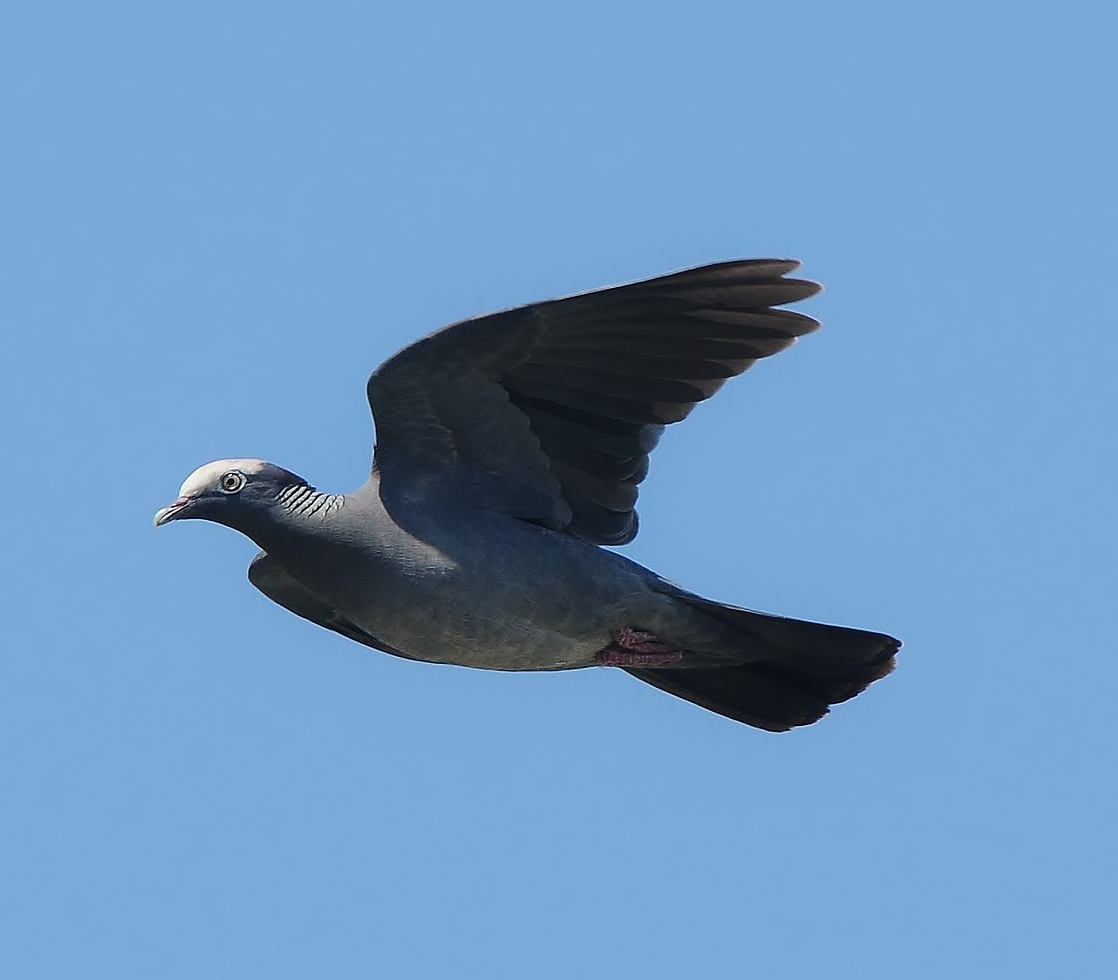 |
| Photo by Cory Gregory (See You At Sunrise…) |
Common name:
white-crowned pigeon (en); pombo-de-coroa-branca (pt); pigeon à couronne blanche (fr); paloma coronita (es); weißkopftaube (de)
Taxonomy:
Order Columbiformes
Family Columbidae
Range:
This species is found in the northern Caribbean, from the Bahamas to Guadeloupe, and also in southern Florida and along the eastern coasts of Central America from the Yucatan Peninsula of Mexico to northern Panama.
Size:
These birds are 30-40 cm long and have a wingspan of 50-60 cm. They weigh 150-310 g.
Habitat:
The white-crowned pigeon is mostly found in mangroves, especially in isolated offshore islets, but also use coastal rainforests and tropical dry forests, from sea level up to an altitude of 1.500 m.
Diet:
They feed on a wide range of fruits and berries, and are also known to take some insects, such as wasps and flies, as well as small snails.
Breeding:
White-crowned pigeons breed in April-September. The nest is a loose platform of twigs, lined with smaller twigs, placed most often on a mangrove tree over water. The female lays 1-2 white eggs which are incubated by both parents for 13-14 days. The chicks are fed crop milk and fruits by both parents, fledging 17-25 days after hatching. When food is abundant, each pair may raise up to 4 broods in a season.
Conservation:
IUCN status – NT (Near-Threatened)
This species has a large breeding range and the global population is estimated at 100.000-1.000.000 individuals. The population is suspected to be declining as a result of habitat degradation and unsustainable levels of hunting, both legal and illegal. Collision with man-made objects is a major source of mortality in Florida, and pesticide use and human impact may also have detrimental effects.







